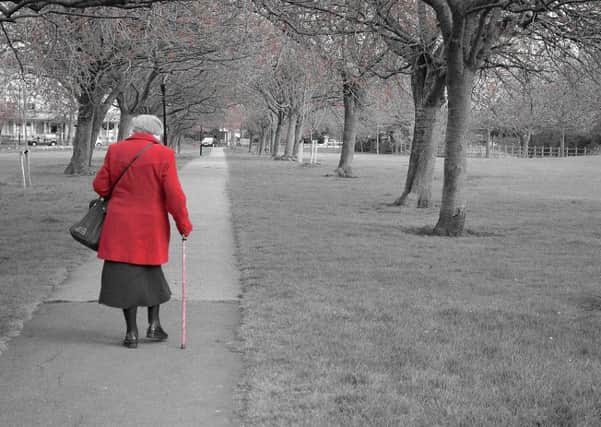Lizzy Buchan: Tackling loneliness must be a health priority


The retailer delivered light-hearted fare this year with the tale of Buster the Boxer, desperate to jump on the new trampoline that appears in the garden on Christmas Eve.
Last year’s offering was more sombre, where a lonely man on the Moon connects with a little girl who sends him a telescope so that he can see her on Earth. While it was only an advert, it sent a serious message about devastating impact of loneliness that captured the nation’s attention for a short time.
Advertisement
Hide AdAdvertisement
Hide AdFriends and family are naturally at the forefront of many of our minds during the festive period, but loneliness is an issue that is not just for Christmas.
Social isolation always seems to be something abstract that happens to the crowds of faceless elderly people often referred to in politics and policy discussions. Sadly, it is neither rare nor simple to identify.
The structural supports of a life can fall away quickly if just a few things go wrong or if the services a person relies on for support are removed by funding cuts.
GPs tell me of increased numbers of people coming in to the surgery just for company or reassurance, which in the past might have been provided by their priest or community leaders.
And people who have families and friends can still be lonely, especially if they feel marginalised or disconnected from wider society.
We should care about loneliness on a human level as the despair it engenders is something no-one deserves.
It also has major implications for health, which are due to be discussed at a Voluntary Health Scotland conference in Edinburgh today.
There is increasing evidence to show that a lack of social connections is actually harmful for us, with more of an impact than well-known risk factors such as lack of exercise and obesity.
Advertisement
Hide AdAdvertisement
Hide AdOne piece of research suggests that loneliness is a comparable risk factor for early death as smoking 15 cigarettes a day.
At first it might seem odd to compare something like smoking, with its demonstrable impact on health, to something as abstract as loneliness.
Yet isolation can damage someone’s self worth and mental health, meaning people may not pick up on physical health issues until too late or lack confidence to go to see a doctor for weeks on end when they find a lump or can’t get rid of a cough.
A report from MSPs published last year found that loneliness and isolation could be as damaging to health as poor housing and poverty.
Keeping people healthy and in their own homes is much better for both their wellbeing and for the health service as a whole.
Therefore it is welcome that the Scottish Government has pledged to develop a national strategy for combatting loneliness, which will be informed by engagement with academics, charities and local government.
But this promise must amount to more than just hot air. We need to recognise our societal responsibility for dealing with social isolation and prioritise it as part of the public health agenda. Action must also be taken to remove the stigma that prevents many from seeking help.
Tackling loneliness may not be glamorous but it could make Scotland a more progressive and welcoming place – to everybody’s advantage.